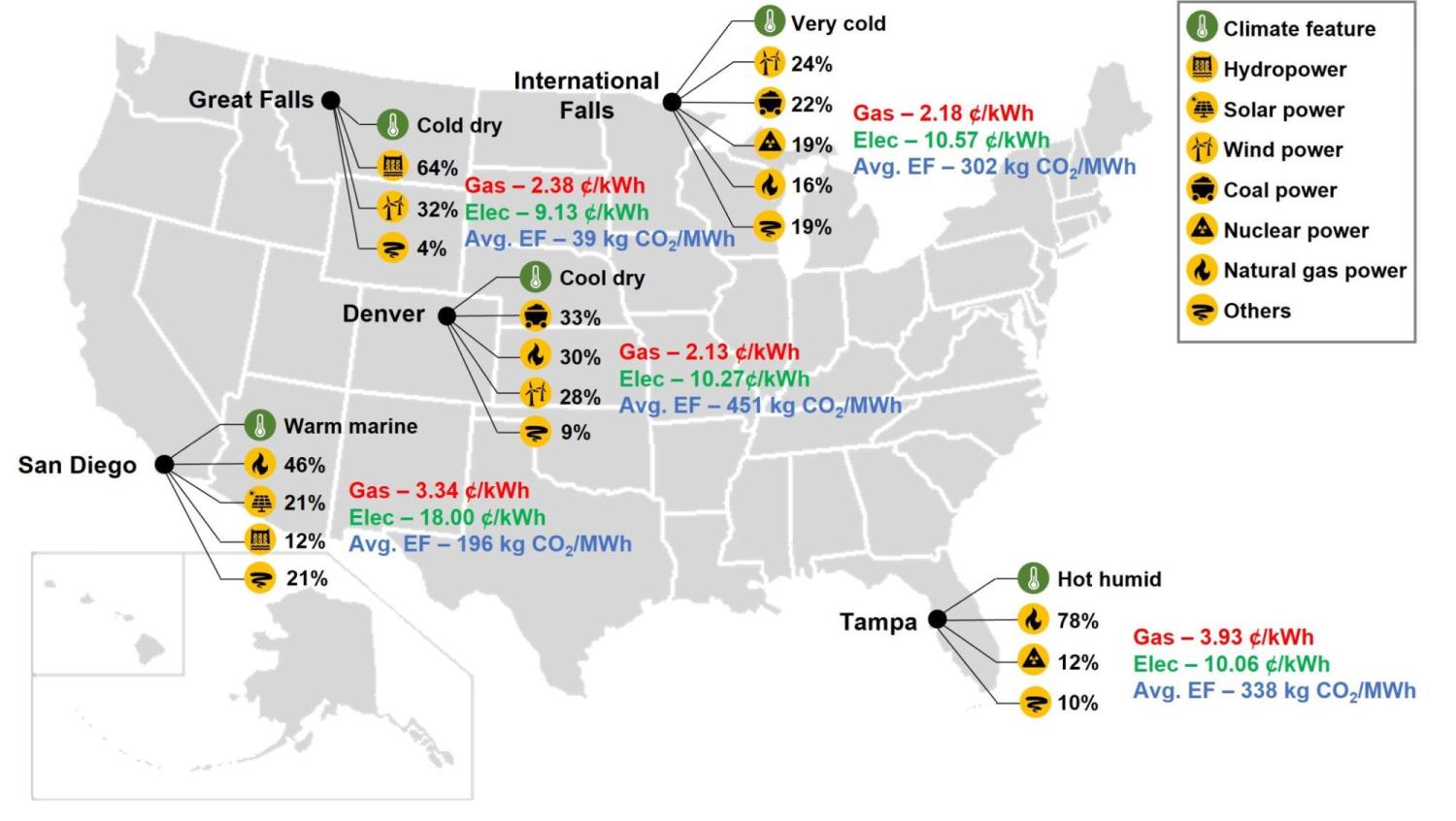Paper on Tradeoffs Among Indoor Air Quality, Financial Costs, and CO2 Emissions for HVAC Operation Strategies to Mitigate Indoor Virus in U.S. Office Buildings has been published in Building and Environment

It is challenging to provide excellent indoor air environment, while saving operational cost and reducing CO2 emission. In this work, we explored the tradeoffs among indoor air quality, financial costs, and CO2 emissions for HVAC operation strategies to mitigate indoor virus in U.S. office buildings. New evaluation metrics are created to consider the comprehensive impact of improving IAQ on costs and CO2 emissions, using dynamic emission factors for electricity generation depending on the location. HVAC operation strategies are studied in five different locations across the United States, with distinct climates and electricity sources. In four of the five locations, MERV 13 filtration offers the best improvement in IAQ per increase in costs and emissions relative to MERV 10. The exception is the mildest climate of San Diego, where use of 100% outdoor air provides the best IAQ with a limited increase in costs and emissions.
This work has been published under the title "Tradeoffs Among Indoor Air Quality, Financial Costs, and CO2 Emissions for HVAC Operation Strategies to Mitigate Indoor Virus in U.S. Office Buildings " in the journal Building and Environment. The full paper is available at this link.
The first author of this paper, Cary Faulkner, is a Ph.D. student in the SBS lab and his research interests include building system modeling, computational fluid dynamics, indoor environment modeling, and machine learning.
Congratulations to Cary on publishing this paper!

